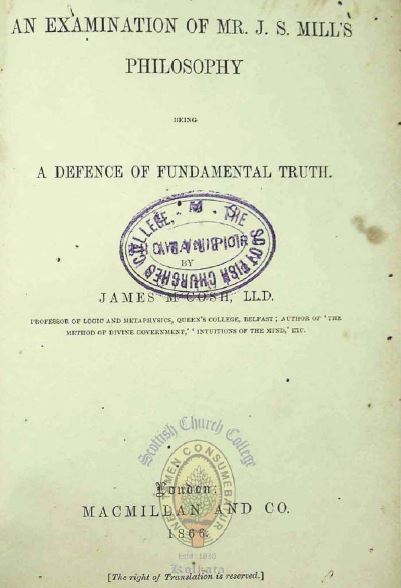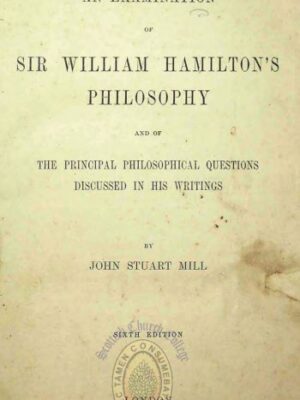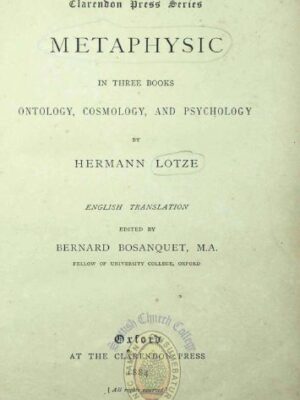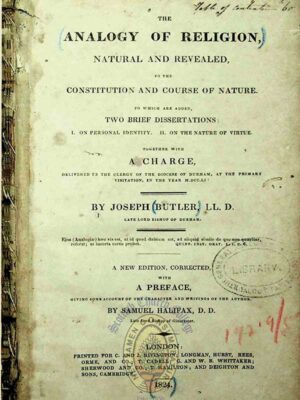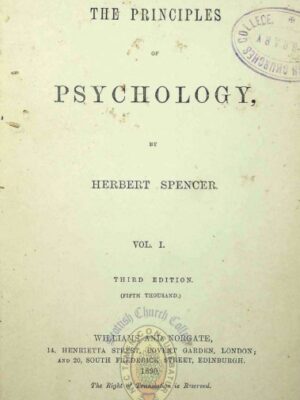Description
In An Examination of Mr. J. S. Mill’s Philosophy, James McCosh offers a rigorous critique of the philosophy of John Stuart Mill, one of the most prominent British philosophers of the 19th century. McCosh, a Scottish philosopher and theologian, aims to defend traditional metaphysical and epistemological principles against Mill’s empiricism and utilitarianism. He challenges Mill’s rejection of innate ideas and critiques his theories on perception, logic, and moral philosophy.
McCosh advocates for what he sees as fundamental truths in philosophy, such as the existence of the mind as an independent entity and the validity of moral absolutes, opposing Mill’s more relativistic and empirically grounded approach. The book is written as both a philosophical rebuttal and a defense of intuitive knowledge and theism, engaging with topics like causation, free will, and the nature of reality.
This work is crucial for students of philosophy, particularly those interested in 19th-century debates on empiricism, utilitarian ethics, and the nature of knowledge. McCosh’s defense of metaphysical realism makes it an important counterpoint to Mill’s empirical skepticism.

